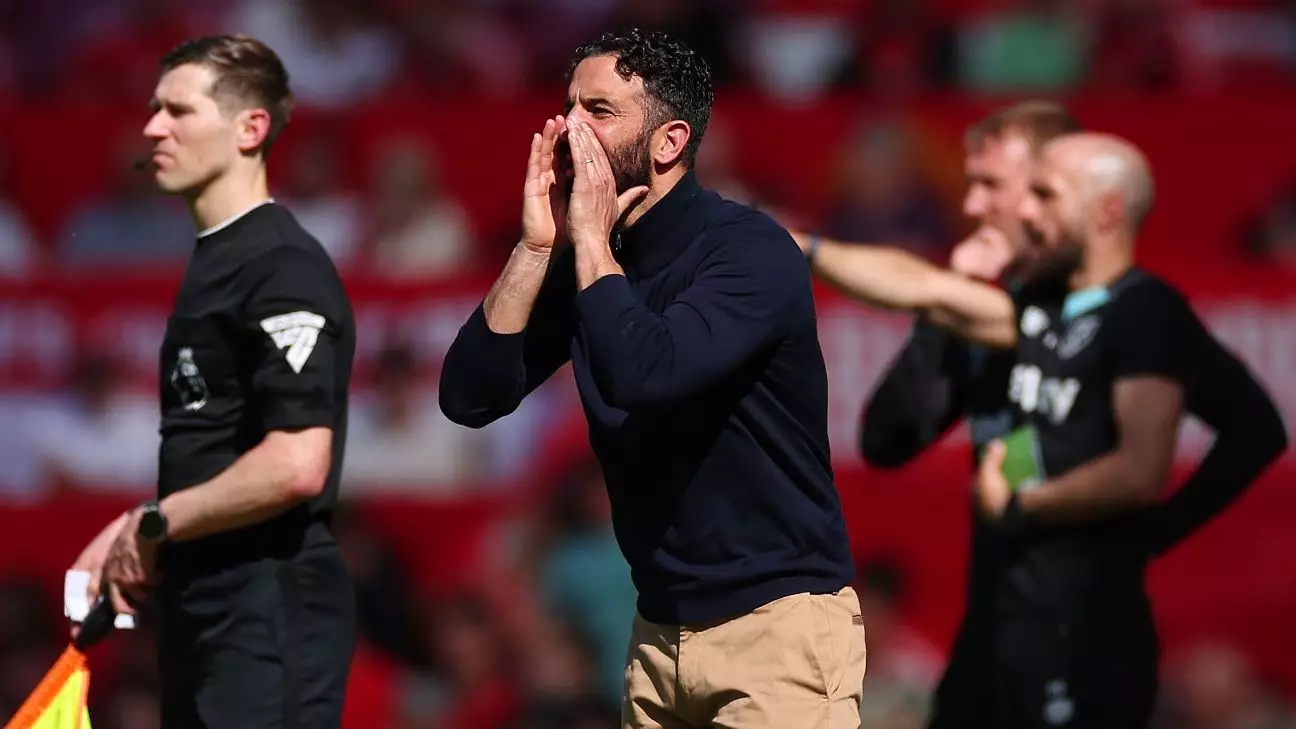Reviving Manchester United: The Urgency for Change
Hey there, fellow football enthusiasts! If you’re anything like me, then the ups and downs of Manchester United have been a roller coaster ride you can’t get off. There’s something about this club that captures our hearts and refuses to let go, no matter what the scoreboard says. Recently, though, it feels like we’re holding on by a thread, hoping for brighter days ahead. It’s a time of reflection and realization as we face the urgent need for change at Old Trafford.
I remember the first time I watched Manchester United play; it was mesmerizing. The energy was electric, the players were icons, and the atmosphere was unforgettable. But today, it’s hard not to notice the shift—something’s missing. Ruben Amorim’s recent press conference really hit home for many of us. His words echoed a sentiment we’ve all felt: disappointment mixed with a desperate hope for revival. It’s time we talk about what’s happening behind the scenes and how we can turn things around.
Key Takeaways
- Manchester United faces significant challenges under Ruben Amorim’s leadership.
- A cultural shift is needed to restore urgency and ambition within the team.
- The upcoming fixtures could be pivotal in changing the club’s current trajectory.
- Community support and strategic changes are essential for future success.
The Cultural Crisis A Lack of Urgency
The heart of Manchester United’s current struggles seems to lie in an invisible yet palpable cultural crisis. Amorim pointed out a lack of urgency that has seeped into the players’ mindset—a troubling sign for a club that once thrived on its relentless pursuit of victory. It’s about more than just tactics or talent; it’s about reigniting that fierce determination that once defined Manchester United. We need to ask ourselves how this atmosphere came to be and what steps can be taken to remedy it.

The disconnect between expectation and performance is disheartening, but recognizing it is the first step toward change. Amorim didn’t shy away from admitting that this issue isn’t just about individual performances; it’s deeply embedded within the team’s culture. His ability to confront these uncomfortable truths shows a managerial approach focused on collective mentality over individual brilliance. A win-at-all-costs spirit needs to be rekindled to prevent this season from becoming part of a downward trend.
The Path Ahead A Brave New World
As we look ahead, it’s crucial to understand that change won’t happen overnight. Amorim’s contract extends until 2027, giving him time but also adding pressure to deliver results soon. He himself acknowledged that if things don’t improve, it might be time for new leadership—a bold statement in the high-stakes world of football management. With crucial fixtures coming up against formidable opponents like Chelsea and Tottenham, every game counts more than ever.
Each upcoming match presents an opportunity—either to continue down this challenging path or to rise above it, instigating a transformative shift for Manchester United. The Europa League final against Tottenham is not just another game; it’s a potential turning point. Winning could inject much-needed hope and restore some faith among fans and players. However, as Amorim candidly pointed out, winning alone won’t solve underlying issues—it must go hand-in-hand with cultural reform within the club.
Striving for Progress Amidst Challenges
Even amidst frustration, there lies an opportunity for profound change at Manchester United. Amorim’s candidness about their current standing reveals his realistic yet ambitious vision for the club’s future. His openness to tough conversations can pave the way for accountability and inspire a shift in how both players and management approach their roles. Reestablishing a winning culture isn’t just about achieving victories; it’s about embodying that relentless pursuit intrinsically tied to Manchester United’s legacy.

The history surrounding Manchester United is both a source of immense pride and pressure—a double-edged sword that demands excellence continually. Yet within these challenges lie opportunities: moments where struggle can transform into triumph with enough grit and determination from everyone involved—players, coaching staff, management alike—as well as unwavering support from their passionate fan base worldwide who believe wholeheartedly in restoring pride back into one of football’s most storied clubs.
Final Thoughts
In closing our conversation today about revitalizing Manchester United amidst pressing challenges they face currently – remember this journey isn’t just theirs alone but ours together too as die-hard supporters who’ve seen them through highs & lows alike over decades gone by now hopefully heading towards brighter chapters ahead again soon enough with renewed vigor brought forth by necessary changes implemented across board ensuring lasting success once more upon grand stage globally renowned “Theatre Of Dreams” – Old Trafford!
Manchester United, Ruben Amorim, Premier League, Football Management, Team Culture


Leave a Reply